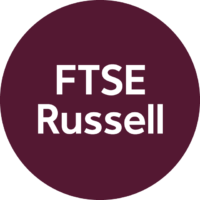

Economy
FTSE Russell Reviews FTSE4Good Index
FTSE Russell has made changes to its FTSE4Good Index Series after a semi-annual review. The global index provider has made its inclusion criteria tougher, but whilst 43 companies have been removed from the index, they have welcomed 77 new members. The majority of new companies are from the USA, with Japan and the UK providing the second and third highest amount of new additions respectively.
The large number of changes reflects the continued impact of FTSE Russell’s new environment, social, and governance (ESG) methodology, which lifted the standards required for companies to maintain inclusion. Existing constituents not keeping pace with the new criteria were first given notice of their risk of deletion over 18 months ago, and the removals this June represents the second tranche of companies not meeting a series of phased deadlines that will continue to remove companies failing to meet the new index requirements.
The largest number of additions at this review is from the USA, contributing 26 companies, followed by Japan, with 10 companies and the UK, which contributed 8 companies. More details on the individual changes are available on FTSE Russell’s website.
The two largest additions are AbbVie, the US listed pharmaceuticals company that spun off from Abbott Laboratories, and Danone the French listed food products company. Danone also needed to meet criteria relating to the marketing of Breast Milk Substitutes (BMS), which now means there are two companies in the index that meet these sector specific requirements. In line with the criteria and index inclusion rules, Danone will now be subject to an external in-country verification assessment commissioned by FTSE Russell to assess their BMS marketing practices on the ground. FTSE Russell is leading a collaborative effort with several organisations to organise these verifications and associated results workshops and subsequently will publish the verification findings report.
The FTSE4Good Series is designed to help investors integrate environmental, social and governance (ESG) factors into their investment decisions. The indexes identify companies that better manage ESG risks and are used as a basis for tracker funds, structured products and as a performance benchmark. The ESG Ratings are used by investors who wish to incorporate ESG factors into their investment decision making processes, or as a framework for corporate engagement and stewardship.


 Features11 months ago
Features11 months agoEco-Friendly Cryptocurrencies: Sustainable Investment Choices

 Energy11 months ago
Energy11 months agoThe Growing Role of Solar Panels in Ireland’s Energy Future

 Energy10 months ago
Energy10 months agoGrowth of Solar Power in Dublin: A Sustainable Revolution

 Energy10 months ago
Energy10 months agoRenewable Energy Adoption Can Combat Climate Change




























